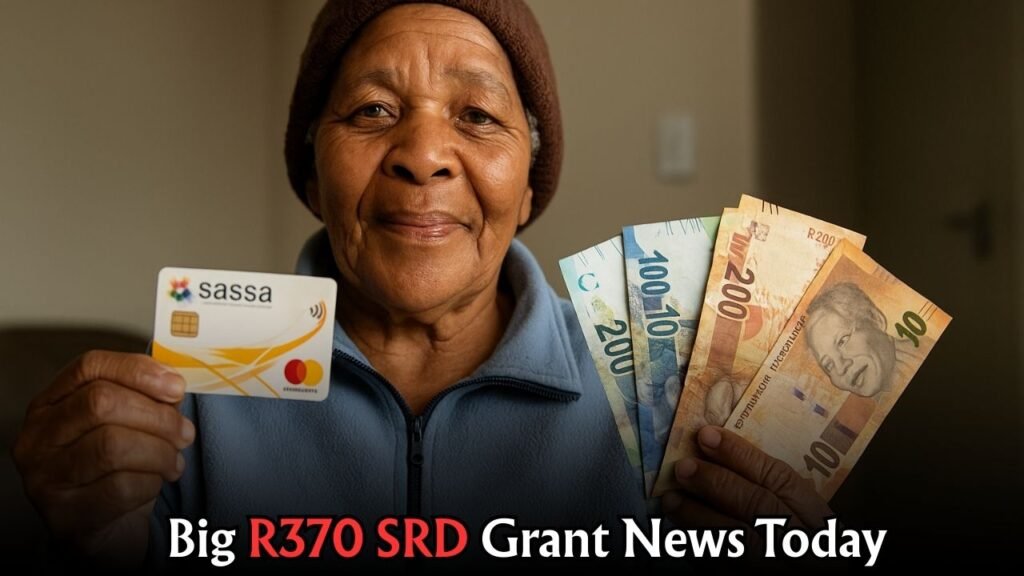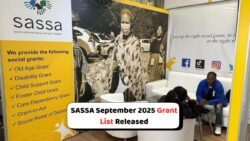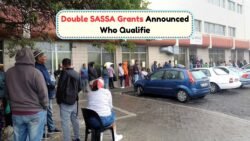Unlock Your R370 SRD Grant: In September 2025, South Africans can access the much-anticipated R370 Social Relief of Distress (SRD) grant, a vital financial aid designed to support individuals facing economic hardships. As the nation continues to navigate economic challenges, this grant serves as a beacon of hope for those affected by unemployment and other financial adversities. With eligibility requirements now available, understanding the criteria and application process is crucial for those in need. This initiative underscores the government’s commitment to providing necessary support to its citizens during difficult times. Here’s a detailed look into how you can unlock this financial aid and ensure you meet the eligibility requirements.

Understanding Eligibility for the R370 SRD Grant in September 2025
Eligibility criteria for the R370 SRD grant are crucial for applicants to understand to ensure they qualify for this essential support. The grant, aimed at helping those who are unemployed or experiencing financial distress, requires applicants to meet specific conditions. Firstly, applicants must be South African citizens or permanent residents, as the grant is not available to foreign nationals. Additionally, individuals must be over the age of 18 and currently unemployed to qualify. Income thresholds are also in place, with applicants required to demonstrate that they have no other financial support or income exceeding R350 per month. Furthermore, those who already receive government grants or UIF payments may not be eligible, emphasizing the need for the grant to reach those without any other means of support. By understanding and meeting these requirements, applicants can ensure they are on the right track to securing this much-needed financial assistance.
Application Process for the September 2025 R370 Grant
The application process for the R370 SRD grant in September 2025 has been streamlined to ensure ease of access for all eligible individuals. The first step involves visiting the official government website or using the designated online portals to submit an application. Applicants will need to provide personal information, including their South African ID number and contact details. It’s essential to ensure all information provided is accurate to avoid any delays in processing. After submission, the application will undergo a verification process to confirm eligibility based on the criteria outlined. Applicants are advised to regularly check the status of their application online, as timely updates will be provided. For those without internet access, alternative methods such as visiting local government offices or using designated mobile application sites are available to assist with the application process. It’s important to stay informed and follow up on applications to ensure successful processing and receipt of the grant.
Impact of the R370 SRD Grant on South African Communities
The R370 SRD grant for September 2025 is expected to have a significant impact on communities across South Africa. By providing financial relief to those most in need, the grant aims to alleviate some of the economic pressures faced by families and individuals. This financial support can help cover basic needs such as food, transportation, and healthcare, contributing to improved living conditions and overall well-being. Moreover, the grant serves as a catalyst for economic stimulation, as recipients are likely to spend the funds within their local communities, thereby supporting local businesses and services. The government’s commitment to providing this grant highlights its dedication to fostering social and economic resilience. By addressing immediate financial needs, the grant plays a crucial role in supporting recovery efforts and enhancing the quality of life for many South Africans.
Future Prospects for Social Relief Grants in South Africa
Looking ahead, the R370 SRD grant for September 2025 may pave the way for future social relief initiatives in South Africa. As the government assesses the impact and effectiveness of this grant, there is potential for the development of more comprehensive social support systems. Such initiatives could include expanding eligibility criteria or increasing the grant amount to reach a broader section of the population. Additionally, lessons learned from the implementation of this grant could inform future policies, ensuring a more efficient and equitable distribution of resources. The success of the SRD grant could also inspire collaborations with private sectors and NGOs to enhance social support networks. As South Africa continues to confront economic challenges, these prospects for future social relief programs highlight the importance of adaptive and responsive government policies that prioritize the welfare of all citizens.



